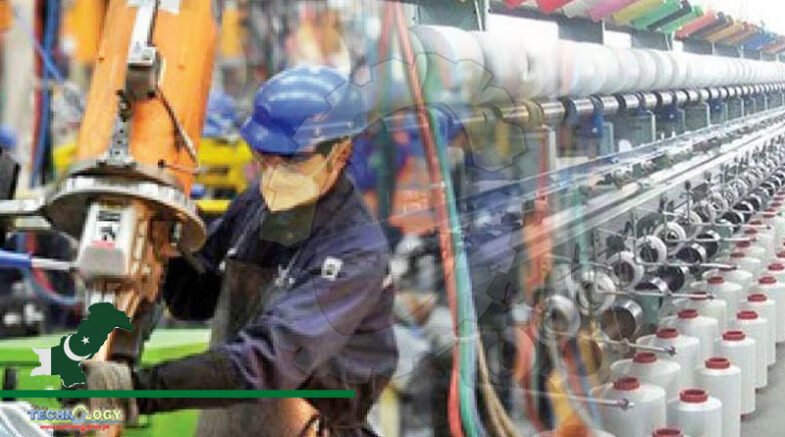Pakistan’s large scale manufacturing (LSM) sector grew at a 16-year high level of 14.85% in the fiscal year ended June 30 as government’s pro-growth policies led to expansion in food, textile, automobile and construction-allied sectors.

The outstanding growth in industries’ output was partly backed by higher export orders received mainly by the textile producers in the country. Besides, the growth helped firms to rehire the staff laid off in the wake of nationwide lockdown imposed in March 2020 to deal with the first wave of Covid-19 pandemic. The increased industrial production also helped the concerned authorities collect higher revenue in form of taxes.
“The overall output of LSMI (large scale manufacturing index) increased by 14.85% for July-June 2020-21 compared to a negative growth of 9.8% in July-June 2019-20,” the Pakistan Bureau of Statistics (PBS) reported on Friday. “LSMI output is up by 14.85% during FY21, the highest growth since FY05,” Arif Habib Limited (AHL) said on its official Twitter handle.
To recall, Pakistan’s economy turned around with significant support coming from the revival of industries, especially those involved in large scale manufacturing, in FY21. The gross domestic product (GDP) grew 4% in the year compared to a negative growth of 0.5% in the prior fiscal year 2019-20 due to temporary suspension of industrial output under the lockdown.
Out of total 15 sub-sectors in manufacturing, 10 reported revival in output while the remaining five continued to face decline in production.
READ Power generation hits all-time high
The production significantly increased in textile, food, beverages and tobacco, coke and petroleum products, pharmaceuticals, chemicals, non-metallic mineral products, automobiles, iron and steel products, fertilisers and paper and board sectors in FY21 on a year-on-year basis.
However, the output in electronics, leather products, engineering products, rubber products and wood products decreased during the year under review compared to the preceding year, data from PBS revealed.
The last month of the prior fiscal year (June 2021) also ended the downward streak in LSM output, which was seen consecutively for the past four months (February-May 2021). The LSMI output increased by 18.42% to 145.2 points on the monthly quantum index of manufacturing (QIM) in June 2021 compared to 122.62 points in the same month last year.
The QIM had fallen to 139.14 points during February-May from 175.46 points at the end of January 2021. “This (growth in LSMI) is a good sign of recovery (in the broader economy),” Pakistan Business Council CEO Ehsan Malik said while talking to The Express Tribune.
However, he stressed that there was a need to take a deeper look inside the increased industrial output, which was once again on the rise on the back of domestic consumption instead of export-led growth. “Our import payments and trade deficit (higher import payments compared to export earnings) kept surging on the back of the local consumption,” he said.
“The growth in the economy should have largely come from export-oriented sectors instead of import-dependent ones…so that our current account balance as well as balance of payment would remain favourable.” Acknowledging the 13% growth in export earnings in FY21, he said that increase in exports remained largely limited to the textile sector, which alone attracted around 60% of the total export earnings of the country during the previous fiscal year. Pharmaceutical sector also made a nominal contribution in export earnings.
However, the significant growth in LSM output was witnessed in domestic consumption led sectors like automobile, foods and construction-allied segment like cement and steel. “The government has rightly announced incentives for IT and telecom sector this week in a bid to achieve higher exports by the sector,” he said.
Originally Published By Tribune Pakistan
